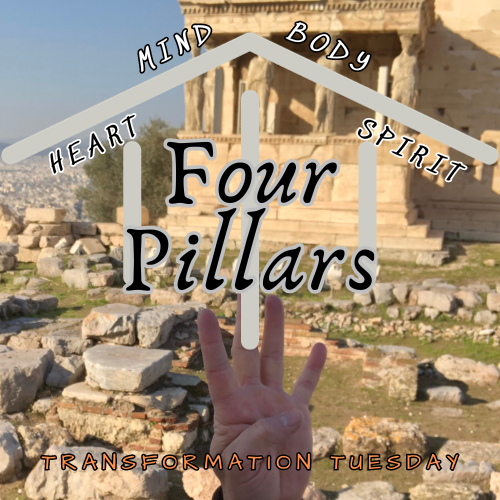“Never focus so much on who you’re becoming that you miss who God saw you would be from the beginning.” – LaBryant Friend
Great leaders demonstrate humility and a willingness to serve others. Serving with humility doesn’t mean you shouldn’t be confident in your God given abilities, but neither should you see yourself greater than you are nor more important than others. There are many ways that might look in practice. One is that if you see a need, do what is within your power to meet it. That may involve sacrificing your own comfort, interests, or time. Time is perhaps the monster I most often wrestle with on this, so I speak from experience: don’t be in such a hurry as to miss an opportunity to help someone in need.
“Don’t raise your fence and hide; lengthen your table and serve.” – Jerry Flowers
Several things have happened this year that excite me. Cleaning up poop from the floor isn’t one of them. At least I don’t think it is. But the fact that I did at least encourages me. Okay, excite was a strong word…scratch that. Several things have happened this year that encourage me.
From body hair to athletic prowess, postsecondary education to behaving like an adult (overrated by the way), I’ve always been a bit of a late bloomer. So better late than never, my life is experiencing somewhat of a late-harvest internal makeover stew that only God could cook up.
Let me take this unnecessarily abstract metaphor uncomfortably further.
Combine ingredients of meaningful retirement work, world travel, renewed daily devotions, and more purposeful prayer time with heaping measures of heartbreak, frustrations, challenges, and difficulties. The result is an amalgamation of personal growth that seems to be fault-testing questionable circuits and softening still-rough edges of this defective and exceedingly average human still under construction. And let’s be clear…I get in the way a lot. Especially when I try to handle this building project myself, erecting walls of self-sufficiency, strong opinions, dubious viewpoints, and questionable decisions that often leave those close to me one eye twitch away from completely losing it.
It’s not lost on me that started out as a cooking analogy.
Baking or building, I’m not so naïve to think I have it all figured out or that I won’t keep taking one step forward and two back. But I’ve tried to be distinctively more cheerful, better at maintaining a positive attitude, and consistently experiencing more joy as I go about life. Lately, living peaceably has come more naturally in this world of selfishness, anger, antagonism, and divisiveness. And while I’ve always tried (not always successfully) to put others first, serve well, and lead with humility, I now purposefully challenge myself to speak and act with gentleness and kindness. Am I always successful? No. Am I finally growing up? I hope not.
Side note: does celebrating humility seem contradictory to you?
Love will deny itself to look out for others.
I remember two things very distinctly about our first stay in Florida with a new-to-us RV a few months ago. 1) The first week was much colder and rainier than expected; 2) Someone there, as Judith Viorst might say, was having a terrible, horrible, no good, very bad gastrointestinal day.
Okay, she probably wouldn’t have written about the gastro problem in her children’s book by a similar name. But it could happen. Perhaps a sequel: Alexander and the Giant Gift of Gastrointestinal Gobbledygook.
Sunbathing opportunities were few due to the weather. But once it cleared, we enjoyed walks around the park, pickleball, and a couple days poolside, which was a nice change from movies, cards, Scrabble, and getting on each other’s last nerve stuck inside the camper.
It was during one of my trips from pool to restroom to clubhouse (for more coffee) that I whiffed a strong, foul, and familiar odor that was NOT coffee. A quick scene survey identified the source: a substantial glob of partially smeared feces on the clubhouse floor. From the look of surprise and disgust on her face, it was simultaneously noticed by a woman passing through at the same time. Naturally she asked, “Is that what I think it is?”
What am I, a doodoo recognition expert?
“Yes, I believe it is.” I replied, glancing at her shoes for evidence of transfer smear.
As we speculated cause and origin, it became apparent from another glop on direct azimuth to the men’s room it was human excrement, not that of a stray animal making its way into the clubhouse.

The bewildered woman began muttering adjectives while threatening to call the office. Meanwhile…swim-suited, flip-flopped, shirtless, and cowboy-hatted (you’re welcome), I armed myself with some damp paper towels and went about cleaning up the mess. She was incredulous, looking at me as if I were about to reach into a vat of radioactive waste.
“Oh…wow. Are you going to clean it up?”
Um, yes. I am.
She was baffled. Wait, didn’t I just say she was bewildered and incredulous? Can you be bewildered, baffled, and incredulous at the same time? I think the answer is maybe. Probably literary cousins…just not the kissing kind.
I’ll admit for a moment I, too, thought to myself, “Who would clean up someone else’s poo from a floor where clearly the establishment has jurisdiction?”
I also admit thinking, “What kind of jerk would poop on the floor and just leave it there?” Then, “Ok, maybe it was an accident. But what kind of jerk wouldn’t clean up after himself?”
It turns out the kind of jerk who probably wasn’t one at all but was still parked on the commode in the men’s room. Feet visible beneath the stall and the unmistakable smell gave him away.
As I began to clean up what I thought was the last spot it became clear the poor man, by this time probably just hiding in the stall out of embarrassment, had clearly experienced an intestinal emergency. Perhaps while out for a walk.
How would I know this, you ask? Besides neither confirming nor denying personal experience (VA calls it IBS; I call it SOS – sudden onset s****), checking the rest of the area revealed several other deposits throughout. The mess appeared to start just inside the north entrance, continued with increasing scale and frequency down the hallway, through the main banquet area, finally taking an obvious turn into the men’s room at the opposite end of the clubhouse.
It pays to have been an investigator. Crime scene doody. See what I did there?
I went through a lot of paper towel, and it took a long time. So long, in fact, my wife thought I fell in. I know because she asked me that.
I’ll admit it wasn’t the most pleasant experience of my stay, or of the new year thus far. But if I hadn’t cleaned up that mess, who would have? If I had a similar experience, wouldn’t I want someone to help? So why not me? Like I said at the outset…
If you see a need, do what is within your power to meet it.
Turns out the poo story demanded more words than expected, but I hope didn’t overshadow the intended message. It was never about cleaning up feces. It’s about showing love, kindness, and service to others – especially when there’s nothing in it for me. I just want God to use my story to show others about his grace and love.
Perhaps everyone becomes closer to God and more emotional as they age…as mortality becomes more real to us. But Paul admonished his readers in 2 Corinthians 4.16 not to become discouraged about this. “Though our outer self is wasting away, our inner self is being renewed day by day.” I know my body wants to slow down, which is why I must fight that much harder to maintain it. But my emotions, my inner self, is being renewed, like the kinetic energy in a flywheel. Unlike my aging body, which requires more effort than before to keep it going, my heart, mind, and soul now spin more freely. My inner self has been building and storing energy through faith, so now that it’s finally ‘spinning faster’ like the flywheel, it requires less energy. Just some inputs along the way to keep it moving smoothly. Love taps, I’ll call them.
Like giving thanks in all circumstances; helping your aging parents if your fortunate enough to still have them; or your neighbor, who doesn’t get around so well, with yard work; or taking time to talk to the homeless or marginalized. These are but a few.
“To serve people is make yourself vulnerable.” – Brant Hansen
I expect many of us don’t know how to interact with the homeless. It’s hard to know who’s genuinely in need or whether you’re being scammed, so what do you do? I don’t have a good answer, other than to be loving and kind regardless of who you encounter or what you do or don’t do for them. Being pleasant costs nothing.
A few months ago, I met a homeless veteran named Dapo. To respect his privacy, I won’t say where I met him, but he made me smile the moment I saw him walking by in the opposite direction. He was cheerful, pleasant, made direct eye contact, and smiled at me. Rather than ignore him or pretend he wasn’t there, which I’ve done in similar situations, I made myself vulnerable, you could say. I stopped and talked with Dapo as my group continued along their way.
He told me how nice it was that I stopped to talk, because most people won’t talk to him – or any of the homeless. I truly enjoyed talking with Dapo. He told me about his friends, other homeless veterans, many of whom don’t come out in the open much because they are treated poorly. Dapo was polite and kind, genuine and friendly. He eventually asked if I would help him buy some food that he could share with his friends. He seemed almost embarrassed to ask and looked surprised when I told him I was happy to help. Of course, I know it could have all been an act, and that’s fine if it was. I handed him $20 and told him I wanted him to use it however he chose, but hoped he would share some with the others he told me about.
Then something happened I didn’t expect. Dapo began to cry, right there on the street. He tried not to, but the way his lips curled under, tears streamed down his face, and his glance turned away betrayed him. He was genuinely emotional at this small gesture.
It was hard for him to speak, but he thanked me over and over. “God bless you”, he kept saying.
“He has blessed me, Dapo. More than I deserve. How could I not share some of that blessing with you?”
“You don’t know how much it means that you would even talk to me, let alone this.”
I hugged him…I couldn’t help myself. God loves this man as much as he loves you, me, and everyone else on the planet. Why shouldn’t I?
The world is pretty messed up. But God is in control and will set things right in his time. My job right now, and maybe yours too, is simply to have the courage and humility to live by faith, be joyful, love people well today, and help make the world a better place by doing good.

Get Strong. Be Strong. Stay Strong.
Flowers and Friend quotes noted via YouVersion Bible App: YouVersion and OneHope, Inc. / Winters Publishing Group
Hansen, Brant (2024). Life is hard. God is good. Let’s dance. Nashville, TN: W Publishing.
Viorst, Judith (1972). Alexander and the terrible, horrible, no good, very bad day. New York, NY: Atheneum Books for Young Readers.

















































